Coffee Meets Olive Oil At Starbucks In Milan- The Oleato Randezvous

Have you heard? You could have an Oleato Randezvous now…at Starbucks! Four decades after Howard Schultz first walked the cobblestone streets of Milan, he has introduced a new range of coffee beverages in the city that inspired his coffee empire. While olive oil in your salad is a must in Mediterranean cuisine, adding a few drops in your coffee is not exactly a tradition in Italy, the unusual Oleato sparked both amusement and curiosity among locals. According to Associated Press, Gambero Rosso described the mixing of olive oil with coffee as a “curious combination” but refrained from passing judgment until it had tried the drinks.
In recent years, there has been a growing trend towards expensive coffee, with people in 80 countries around the world willing to pay a premium for a coffee shop experience. But why are people willing to pay so much for their daily caffeine fix? In this article, we explore the rise of expensive coffee and the reasons why people including myself ( sometimes) are willing to pay a small fortune for a morning cup of joy, before and after the Oleato Randezvous.
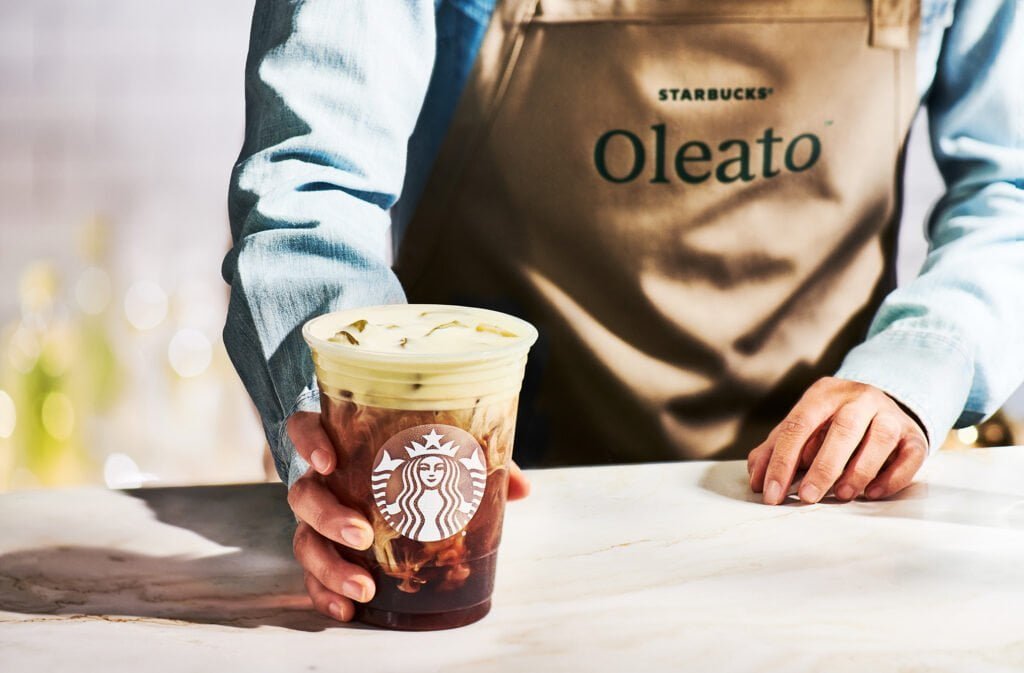
Table of Contents
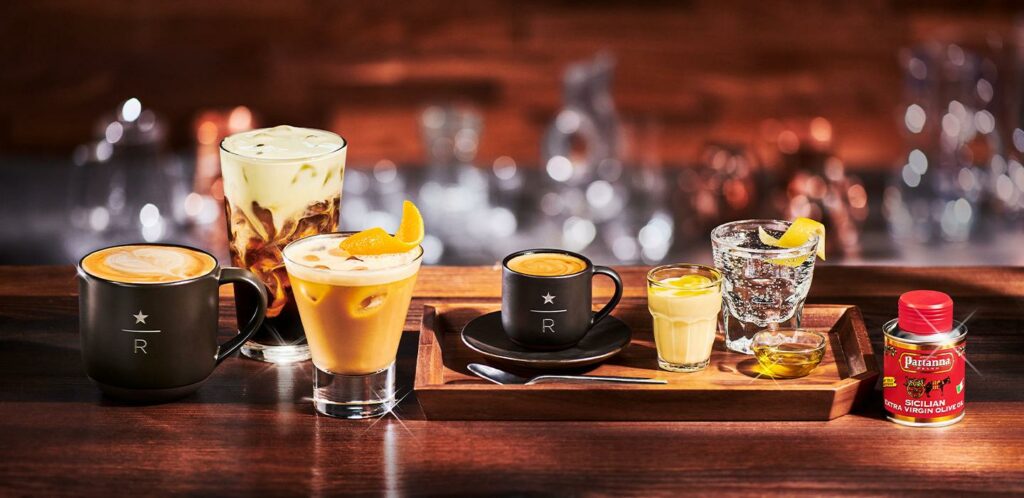
Oleato-Oiling the fortunes of Starbucks?
“Now, there’s going to be people who say, ‘Olive oil in coffee? But the proof is in the cup. In over 40 years, I can’t remember a moment in time where I’ve been more excited, more enthused that demonstrates the pride, the quality, the passion, the heritage and the craft of what Starbucks can do.”
Howard Schultz
Starbucks has made headlines in recent weeks with the launch of its new line of drinks featuring a surprising ingredient: olive oil. “Oleato” meaning “oiled” in Italian, were unveiled by CEO Howard Schultz at the company’s Milan Roastery and will be rolled out in various locations around the world later this year. While the combination of coffee and olive oil may seem odd to some, Italians are taking it in stride, with Gambero Rosso commending Schultz for featuring a staple ingredient of Italian kitchens as a main ingredient, rather than just a condiment.
As well as the health benefits of consuming extra virgin olive oil, which is habitually consumed straight from the bottle by some Italians, Italy’s olive oil producers’ association, ASSITOL, welcomed the innovation, stating that the line of drinks could “relaunch the image of olive oil, especially among young people,” as the association has been promoting adding olive oil to cocktails. The new line is just the latest chapter in Starbucks’ ongoing efforts to cater to global tastes and expand its reach in the international market.


There has been some recent interest in the possible correlation between coffee and olive oil, both of which have been shown to have health benefits. While the two are not commonly consumed together, some experts believe that they could have a synergistic effect when consumed as part of a healthy diet.
Both coffee and olive oil are rich in antioxidants, which can help to reduce inflammation and protect against chronic diseases like cancer, heart disease, and Alzheimer’s disease. Additionally, olive oil has been shown to improve blood lipid levels and reduce the risk of type 2 diabetes, while coffee has been linked to a reduced risk of liver disease and certain types of cancer.
One study published in the Journal of Agricultural and Food Chemistry found that when consumed together, coffee and olive oil could have a protective effect against oxidative stress and inflammation, both of which are linked to chronic disease.
Overall, while more research is needed to fully understand the potential correlation between coffee and olive oil, both have been shown to have significant health benefits when consumed as part of a healthy lifestyle.

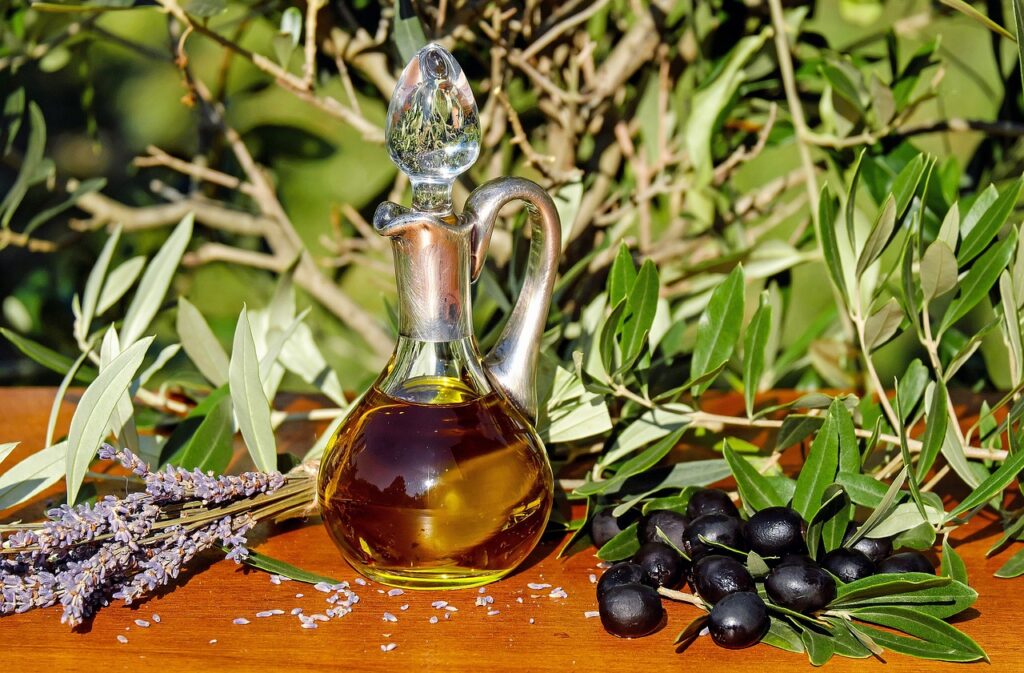
A brief history of olive oil- before the Oleato Randezvous
Olive oil has a long and rich history, dating back to ancient times. The first recorded cultivation of olives for oil production can be traced back to the Mediterranean region, where it was an important part of the diet and economy of the ancient Greeks and Romans. Olive oil was also used for medicinal purposes and as a fuel for lamps.
Throughout history, the production and consumption of olive oil have been associated with the Mediterranean way of life. Olive trees were considered sacred by the ancient Greeks and were often used as symbols of peace and prosperity. The olive branch, for example, is a well-known symbol of peace that dates back to ancient times.
During the Middle Ages, olive oil was an important commodity for trade between Europe and the Middle East. It was highly valued for its medicinal properties and was often used as a currency. In fact, the word “salary” comes from the Latin word “salarium,” which was the payment given to Roman soldiers to buy salt and olive oil.
Today, olive oil is still an important part of the Mediterranean diet and is widely consumed throughout the world. It is also used in many industries, such as cosmetics, pharmaceuticals, and cooking. The quality of olive oil varies greatly, with some of the highest quality oils coming from the Mediterranean region, where olive oil production is still an important part of the local economy and culture.
In recent years, the health benefits of consuming olive oil have been widely recognized, with studies linking the consumption of extra virgin olive oil to a reduced risk of heart disease, cancer, and other chronic diseases. As a result, the demand for high-quality olive oil has increased, and many producers are now focusing on producing premium oils that meet the highest standards of quality and purity.
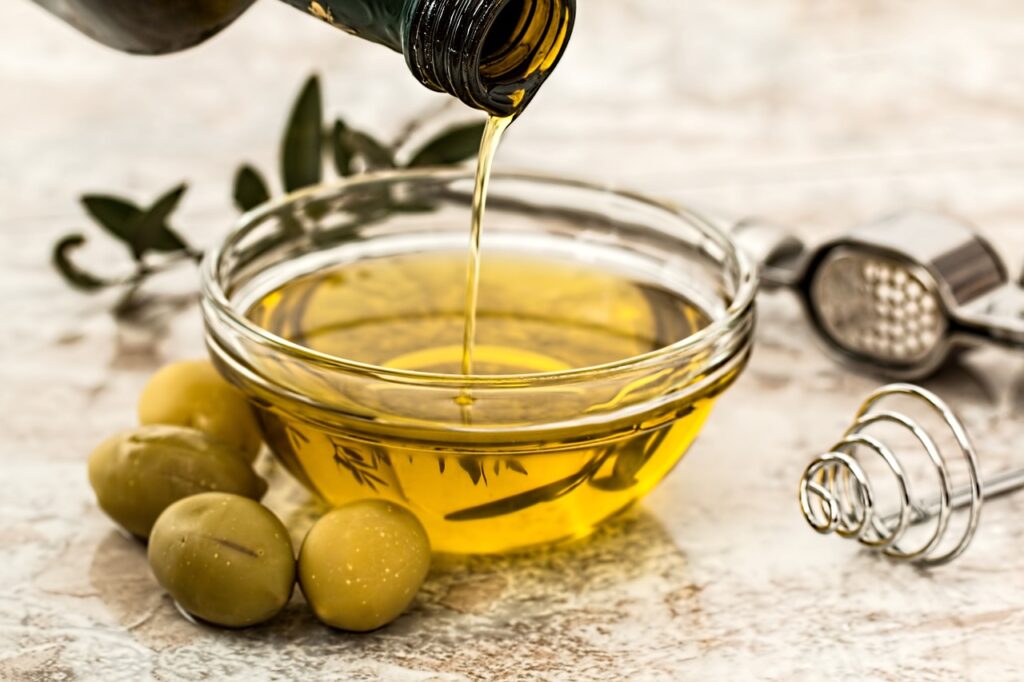
Spain is the largest producer of olive oil in the world, accounting for around 40% of global production. The country has a long history of olive oil production, with some olive trees in Andalusia, a region in southern Spain, believed to be over 1,000 years old.
Spain’s olive oil industry is highly diversified, with a wide range of olive varieties, cultivation techniques, and production methods used across the country. Some of the most common olive varieties used in Spain include Picual, Arbequina, Hojiblanca, and Cornicabra, each with its own unique flavor and aroma profile.
Spanish olive oil is known for its high quality and is widely used in the culinary world. It is commonly used in Mediterranean cuisine, such as in salads, marinades, and sauces, and is often drizzled over grilled meats, vegetables, and bread.
In recent years, the Spanish olive oil industry has faced some challenges, including fluctuating prices, competition from other countries, and the impact of climate change. However, the industry remains a vital part of the Spanish economy, providing employment for thousands of people and generating significant revenue from exports.
To promote the quality of Spanish olive oil, the country has established a number of certifications and designations of origin that ensure the authenticity and traceability of the products. These include the Denominación de Origen Protegida (DOP), which certifies olive oils produced in specific regions of Spain, and the Certificado de Calidad Aceite de Oliva Español, which guarantees that the olive oil is of Spanish origin and meets strict quality standards.
The future of coffee, after the Oleato Randezvous
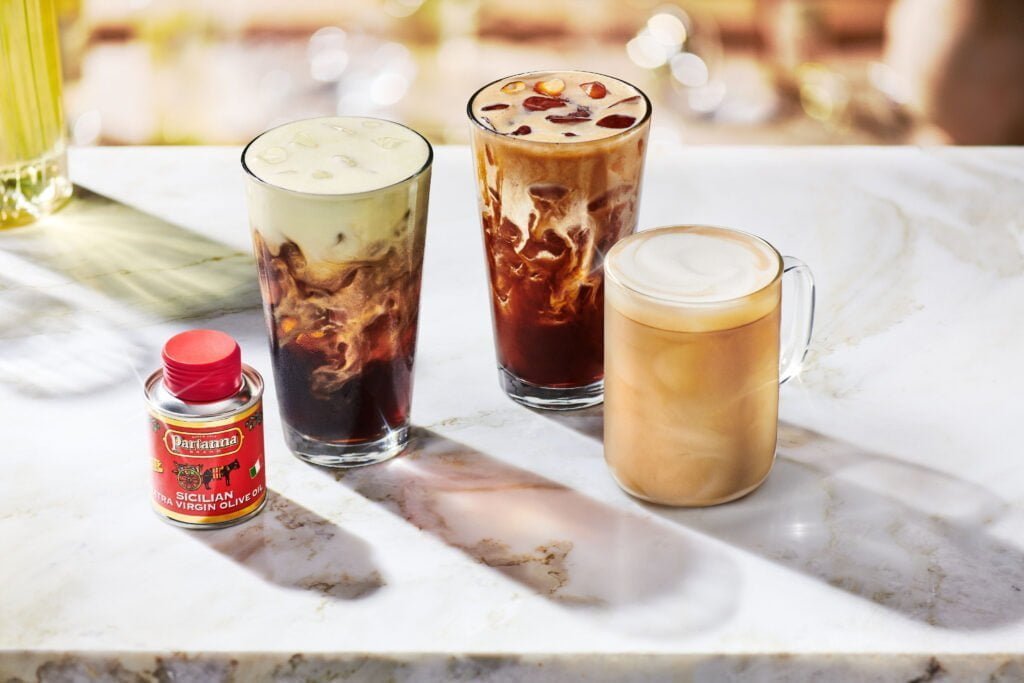
The coffee industry has always been tied to social interaction, bringing people together to share a cup of coffee and engage in conversation. From the traditional coffee houses of Istanbul to the modern coffee shops of New York City, coffee has been a unifying force that bridges cultural and social divides.
Today, the coffee industry is a multi-billion-dollar business, with coffee shops and cafes dotting the streets of major cities around the world. And while the price of a cup of coffee has risen steadily over the years, people are still willing to pay a premium for high-quality coffee.
Many people view their daily cup of coffee as a ritual, a moment of zen, to reflection in a fast-paced world or a chance to catch up with friends over coffee. Coffee shops offer a respite from the hustle and bustle of everyday life, a place to slow down and savor a moment joy.
Just as wine enthusiasts seek out rare and unique varietals, coffee connoisseurs are looking for beans that are sustainably sourced, expertly roasted, and carefully brewed. We are witnessing a new wave of coffee shops and a new generation of coffee shops owners who are sophisticated, creative and resilient while creating an experience for their customers, offering new coffee “genders”, with new chapters in the book of coffee, from pour-over coffee, single-origin beans, and cold brews that are as complex and nuanced as a fine wine.
Looking to the future, it is clear that the coffee industry will continue to evolve and adapt to changing consumer tastes and preferences. One trend that is gaining momentum is the move toward eco-friendly and sustainable coffee practices, with many coffee shops and roasters embracing fair trade and direct trade practices, as well as environmentally conscious methods of production.
There is also a growing interest in innovative ways to brew coffee, with companies experimenting with everything from nitro-infused coffee to coffee cocktails. And with the rise of e-commerce, it has never been easier for coffee lovers to order high-quality beans and brewing equipment online, allowing them to enjoy a world of specialty coffee from the comfort of their own homes.
In conclusion, the social aspect of drinking coffee and the rise of specialty coffee are just two of the factors that have contributed to the rise of expensive coffee. As the industry continues to evolve, we can expect to see more innovations in brewing techniques, sustainable practices, and unique flavor profiles. But one thing is certain: coffee will continue to be a beloved beverage that brings people together and fuels our daily lives.
There has been some recent interest in the possible correlation between coffee and olive oil, both of which have been shown to have health benefits. While the two are not commonly consumed together, some experts believe that they could have a synergistic effect when consumed as part of a healthy diet.
Both coffee and olive oil are rich in antioxidants, which can help to reduce inflammation and protect against chronic diseases like cancer, heart disease, and Alzheimer’s disease. Additionally, olive oil has been shown to improve blood lipid levels and reduce the risk of type 2 diabetes, while coffee has been linked to a reduced risk of liver disease and certain types of cancer.
One study published in the Journal of Agricultural and Food Chemistry found that when consumed together, coffee and olive oil could have a protective effect against oxidative stress and inflammation, both of which are linked to chronic disease.
While for now the only link between coffee and olive oil is Starbucks, both have been shown to have significant health benefits when consumed as part of a healthy lifestyle.
Are you one of those people who can’t start their day without a cup of coffee? If so, you’re not alone. I usually drink my coffee at home before 5.00 am but when I travel I find myself heading to Starbucks and honestly, grateful for paying a small fortune for the privilege of having my coffee when I need it the most. Looking at how many Starbucks cups I brought back to London from around the world, I think I need a bigger kitchen… But I will figure that out when I go back to London. For now I will just enjoy my cup of Starbucks Reserve Espresso, a press of Partanna extra virgin olive oil, and passionfruit cold foam, and Oleato™ Golden Foam™ Espresso Martini.™ I wish you were here…




